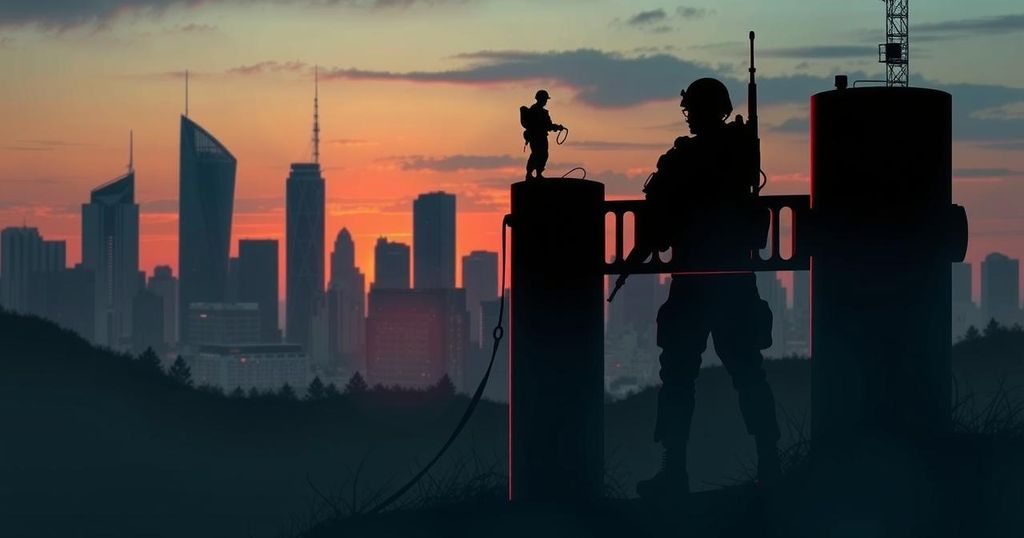Sudanese Army Progresses in Khartoum, Insists RSF Must Disarm Before Talks

The Sudanese army has advanced in Khartoum by seizing crucial territory from the RSF, asserting that negotiations will only occur if the RSF disarms. The ongoing conflict has resulted in extensive casualties and displacement. President Al-Burhan outlined plans for a technocratic government while rejecting any cease-fire that grants the RSF territorial advantage. The broader implications involve challenges to governance and demands for future political participation, particularly concerning past regimes.
On Saturday, the Sudanese army reported that it seized control of a strategic zone in northern Khartoum previously occupied by the Rapid Support Forces (RSF). This military operation brings the army closer to achieving full dominance over northern Khartoum, which constitutes part of the capital city of Sudan. The seizure of the Abu Quta area, a key RSF stronghold, marks a significant escalation in the ongoing conflict between the two factions.
The spokesperson for the Sudanese army, Nabil Abdullah, stated that their forces, with allies, successfully eliminated remnants of RSF units in the area, effectively bolstering the army’s position. As the fighting persists, military sources indicated that troop advancements toward central Khartoum are imminent, aiming to expel RSF fighters still positioned there. This ongoing conflict has led to severe humanitarian crises, including tens of thousands of deaths and the displacement of over 12 million people.
Sudanese Sovereign Council President Abdel Fattah Al-Burhan announced that negotiations with the RSF will not resume until they disarm. He asserted that the army does not intend to declare a cease-fire without the RSF’s withdrawal from the battlefield. Al-Burhan expressed confidence in the army’s capability to regain control of Sudan, stating that the eventual solution lies in military victory rather than negotiations.
He further revealed plans to establish a technocratic government and emphasized that civilian leadership will be sought to guide the remaining military operations. Highlighting the restrictions on former political parties, Al-Burhan warned the National Congress Party, linked to past regime abuses, that it must avoid exploiting the current turmoil, reiterating that future governance should be determined through elections.
The ongoing conflict between the Sudanese army and the RSF dates back to April 2023 and has escalated into violence and humanitarian crises across the region. The RSF, a paramilitary group, is led by commander Mohamed Hamdan Daglo, known as Hemedti. The struggle for control, particularly within Khartoum, illustrates the broader power tussles ongoing in Sudan following years of turmoil and dictatorship. The Sudanese military aims to restore governance and stability by defeating RSF forces and forming a civilian government. The situation has resulted in the destruction of vital infrastructure and a health system on the brink of collapse, further complicating efforts to alleviate the profound humanitarian crisis affecting millions in Sudan. With the army’s latest operations, the fate of control in Sudan remains in flux, influencing both local and international perceptions of governance and the state of democracy in the nation.
The Sudanese army’s recent territorial gains in Khartoum signify critical shifts in the ongoing power conflict with the RSF. President Al-Burhan’s refusal to engage in negotiations without disarmament illustrates the army’s commitment to regaining authority over Sudan. As the battle continues to unfold, the humanitarian consequences deepen, raising urgent questions about governance, civilian leadership, and the future political landscape in Sudan.
Original Source: www.dailynewsegypt.com








